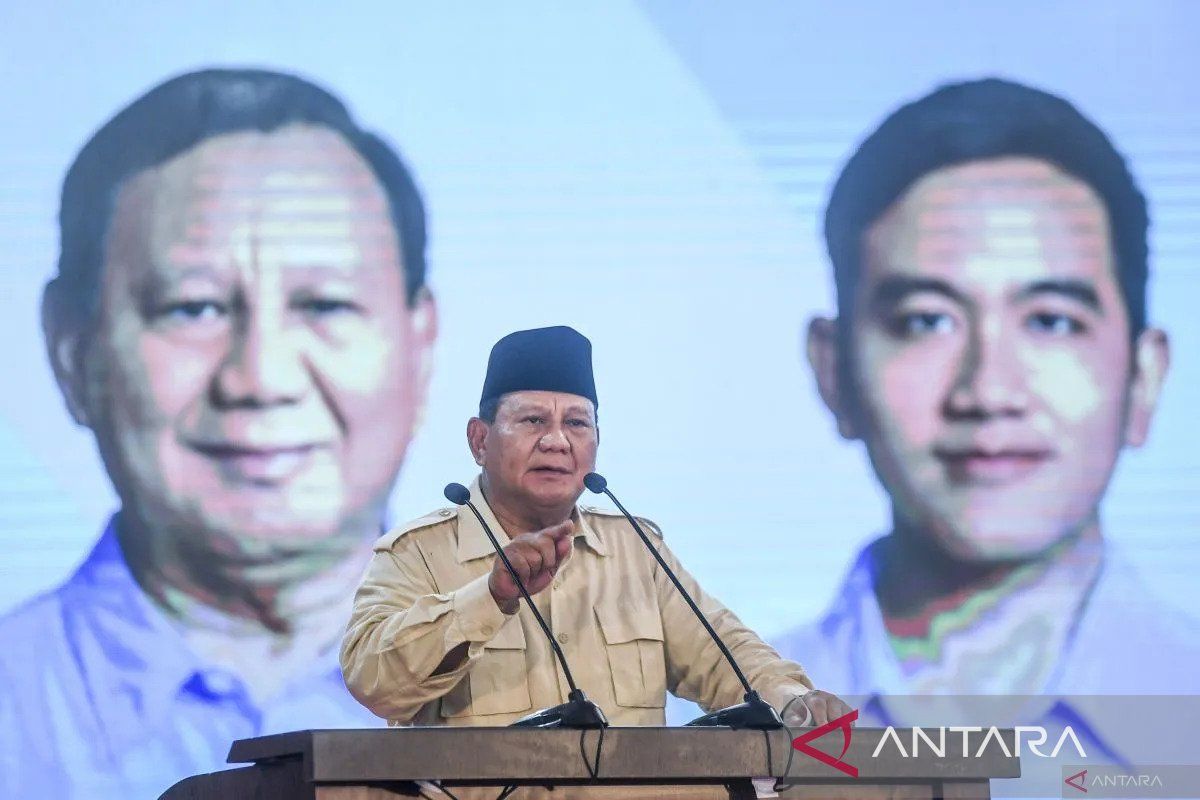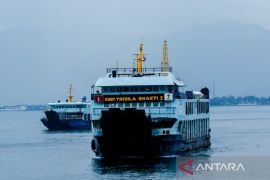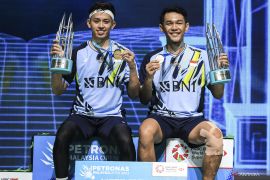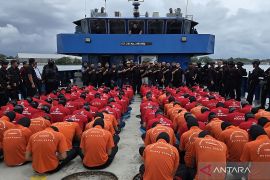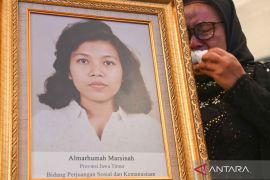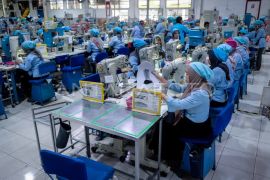Jakarta (ANTARA) - Indonesia’s newly-inaugurated president, Prabowo Subianto, assumed office on October 20, succeeding President Joko Widodo, commonly known as Jokowi.
For South Korea, Indonesia remains an important partner across multiple sectors, including trade, defense, and human resources, with a large number of Indonesians living and working in South Korea.
For Indonesia, South Korea serves as a role model for national advancement. Jokowi often drew parallels between South Korea and Indonesia, noting that both nations faced similar circumstances in the 1950s to 1970s.
However, since then, South Korea's rapid development has surged ahead of Indonesia's growth trajectory, providing important insights and developmental lessons to consider.
Baca juga: Prabowo, Boluarte hold talks on economic agreements, anti-drug efforts
Historically, Indonesia and South Korea established official diplomatic relations in 1973, which was marked by Indonesia’s opening of an embassy in Seoul.
Before that, Indonesia had opened a consulate in Seoul in 1966. The collaboration between the two nations gained significant momentum following President Suharto’s first visit to Seoul in 1982.
On the occasion of the 50th anniversary of diplomatic relations in 2023, both countries expressed a strong desire to deepen cooperation, culminating in the signing of the Indonesia-Korea Comprehensive Strategic Partnership (IK-CSP) in January 2023.
Currently, three critical areas stand out in the Indonesia-South Korea relationship: Indonesian migrant workers in South Korea, defense cooperation, and green economy initiatives, along with other investments.
Regarding migrant workers, Indonesia has sent laborers to South Korea since 1987, coinciding with South Korea’s economic boom. Government-to-government cooperation has expanded through programs such as the Industrial and Technical Training Program (ITTP).
Approximately 12,000 Indonesian workers were sent to South Korea in 2023. These workers, enjoying comfortable living conditions, contribute to Indonesia's economy through foreign remittances and support their families back home. Their presence is evident in Indonesian businesses such as restaurants and stores across South Korea.
In defense, cooperation has strengthened with joint projects such as the DSME 209/1400 submarine, the T50 trainer jet, and the KFX/IFX fighter aircraft.
Additional collaborative forums, including the Defense Industry Cooperation Committee (DICC), the Foreign and Defense Senior Officials Meeting, the Joint Defense Cooperation Committee (JDCC), and the MoU on U.N. Peacekeeping Operations between the Indonesian Armed Forces (TNI) and the Republic of Korea Armed Forces (ROKAF), demonstrate the robustness of their partnership across various dimensions.
Indonesia’s eagerness to strengthen this cooperation stems from Korea’s expertise in technology, innovation, and human resources—key areas for Indonesia’s development.
A third pillar of cooperation involves green economy initiatives and climate change. Carbon reduction and carbon trading are crucial areas for joint efforts. South Korea can play a vital role in Indonesia's sustainable development plans, especially in building Nusantara into a green smart city.
While these collaborations were shaped by Jokowi’s leadership, what can be expected under Prabowo’s presidency? Several perspectives warrant consideration.
For Indonesian migrant workers, South Korea remains an attractive destination, offering competitive wages and favorable working conditions.
To support these workers, the newly established Ministry of Migrant Workers' Protection, headed by Minister Abdul Kadir Karding, is currently tasked with ensuring their welfare and security.
This ministry, which evolved from the former BP2MI agency, has been upgraded to ministerial status, underscoring its strategic importance.
Many Indonesian workers expressed satisfaction with the support they received during Jokowi’s administration, with valuable assistance from the South Korean government.
Under Prabowo’s leadership, this newly structured ministry is expected to build on earlier efforts, enhancing its capacity to support migrant workers in South Korea.
Defense cooperation between Indonesia and South Korea previously encountered obstacles, primarily stemming from communication challenges and occasional mutual distrust.
However, with Prabowo’s background as former defense minister, there is hope that these issues can now be managed more effectively, paving the way for stronger, more transparent collaboration.
Given both countries' substantial resources and market opportunities, the potential for expanding defense cooperation is significant, promising mutual benefits in security, technology, and innovation.
South Korean investment in Indonesia is another key area of focus. In 2023, South Korea ranked as the seventh-largest foreign investor in Indonesia, with investments reaching US$2.5 billion.
The economic partnership has shown significant growth, with bilateral trade totaling US$20.8 billion in 2023. Through the Joint Committee on Economic Cooperation (JCEC), both nations have targeted sectors for development, including electric vehicles, where South Korea has a prominent role.
Hyundai’s electric vehicles, for instance, have become increasingly popular in Indonesia, symbolizing the strength of this partnership. Additionally, digital trade and e-commerce have emerged as crucial areas for collaboration, with South Korea supporting Indonesia’s vision for a digitally connected economy.
People-to-people connections between Indonesia and South Korea have flourished. Indonesians have embraced K-pop and the broader "Hallyu" wave, while South Koreans are becoming more familiar with Indonesian culture, food, and traditions introduced by migrant workers.
This growing cultural exchange is reflected in tourism trends, with South Koreans being major visitors to Indonesia and Indonesians becoming top 10 visitors to South Korea in 2023.
Recently, Jeju Air launched a Batam–Jeju route, adding another direct connection between Indonesian and Korean cities. Thus, a visa-free travel arrangement for Indonesian tourists to South Korea is worth considering, although it may face several challenges.
Undoubtedly, Prime Minister Han Duck-soo's presence at President Prabowo’s inauguration underscores the urgency of strengthening relations between Indonesia and South Korea amid global uncertainties and escalating conflicts.
This high-level representation reflects South Korea’s commitment to the partnership, signaling that both nations view their relationship as essential not only for economic growth but also for regional stability and security.
*) Ali Maksum is a fellow at Chey Institute for Advanced Studies, Seoul, South Korea.
The views and opinions expressed on this page are those of the author and do not necessarily reflect the official policy or position of ANTARA News Agency.


